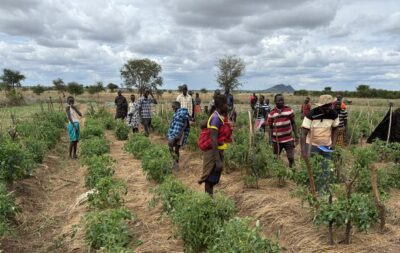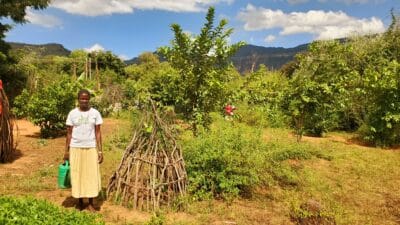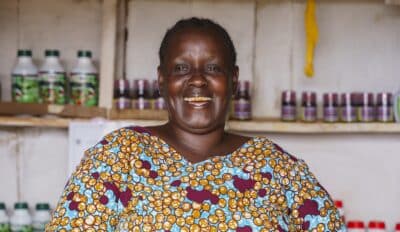Expert view
22 January 2013
Postcard from Ethiopia: Incense, didgeridoos, and forest management against all the odds

By Michelle Winthrop
It had been a long and exceptionally tough week. So when I found out I had to go to Benishangul-Gumuz, a remote region in the far west of Ethiopia to sign a piece of paper in the bank, joy was not my first reaction. But as soon as I had performed my signing duties, as we discussed plans for the next two days’ field visit, I remembered why I work for Farm Africa in the first place.
Benishangul has a relatively low profile in Ethiopia – but it also has a rich resource of forests, a complex mix of ethnic groups, and a proximity to neighbouring Sudan. In the past that meant job opportunities for young people here, but nowadays means more and more refugees coming to Ethiopia. Despite my long years in Ethiopia, I had never been there, and quickly I became really excited about meeting new people with new experiences of development.
Sustaining forest resources
Our work here is focused on helping communities to manage their precious forest resources themselves, and helping them sustainably earn a living from doing so. As with other forest areas of Ethiopia, there are opportunities from honey and bamboo. But in Benishangul, the endowment of gums and resins is particularly rich.
Tapping tree trunks for incense (in a way that doesn’t damage the tree, as we’ve trained them) used to be something that only the poorest people did. But nowadays, a group can earn up to £1,888 a year from this. One group member stated that with the £90 he earned from incense last year he managed to make significant improvements to his house.
Initially the community thought our team were joking when they first came to explain about the gums and resins in the forest. Now they see it’s no joke.
Working with women
Of course helping communities to unleash their entrepreneurial spirit takes a bit of support too. That’s why we’ve supported them to establish Village Savings and Loan Associations, which are dominated by women.
One member told me how she had taken a loan of ETB300 (about £11) to trade in salt and onions. In one month she earned about £6 in profit, now fully reinvested in her activities.
Harvesting wild grass
 Another activity yielding money is harvesting a wild local grass locally known as Yera, which they sell to the local refugee camps for them to construct houses. Last year this earned the local enterprise group about £925, which worked out at about £11 for each household.
Another activity yielding money is harvesting a wild local grass locally known as Yera, which they sell to the local refugee camps for them to construct houses. Last year this earned the local enterprise group about £925, which worked out at about £11 for each household.
Currently, local middlemen are earning 150% profit in passing the grass on to local camps, and the lady from the government who accompanied us said she would look into allowing the camps to buy direct from the forest cooperatives. One man stated, “Previously I used to just burn the Yera grass – now I understand that’s just like burning money.”
Long struggle
These communities face a long, hard struggle. Competition for resources with refugees, persistent forest fires, asserting themselves in the face of large companies who would rather take the profits from the forests themselves. But their confidence, focus and spirit are truly inspirational.
Nor is shyness a feature. “Will you take me to visit London?” asked one community leader. After a vague response, it was on to the fizzy drinks and the traditional music performance, done with didgeridoo-type instruments and percussion with oxen horns, and small children being bullied by their parents into dancing in formation. As I wondered whether I could bully my own three-year old into formation dancing, I thought how some weeks aren’t so bad after all…
– Michelle is our country director in Ethiopia
Read more about our forest management work
Read more about our work in Ethiopia




